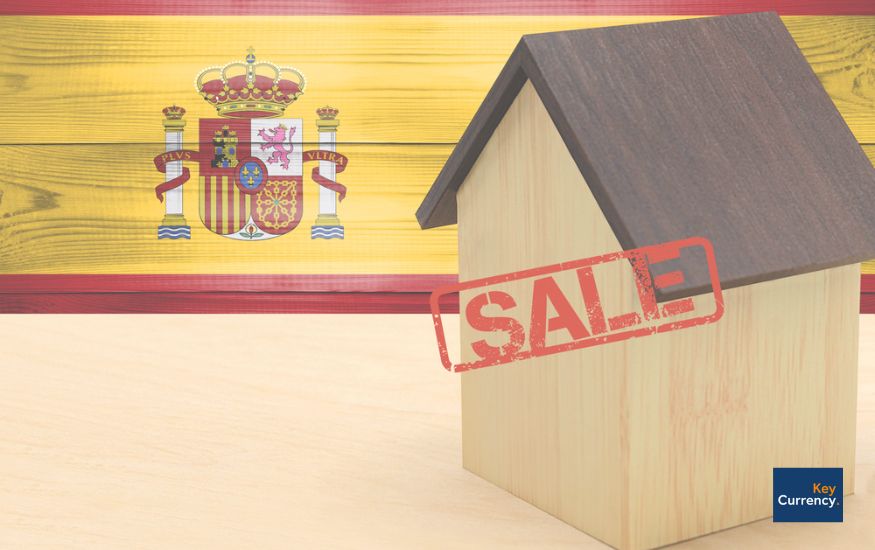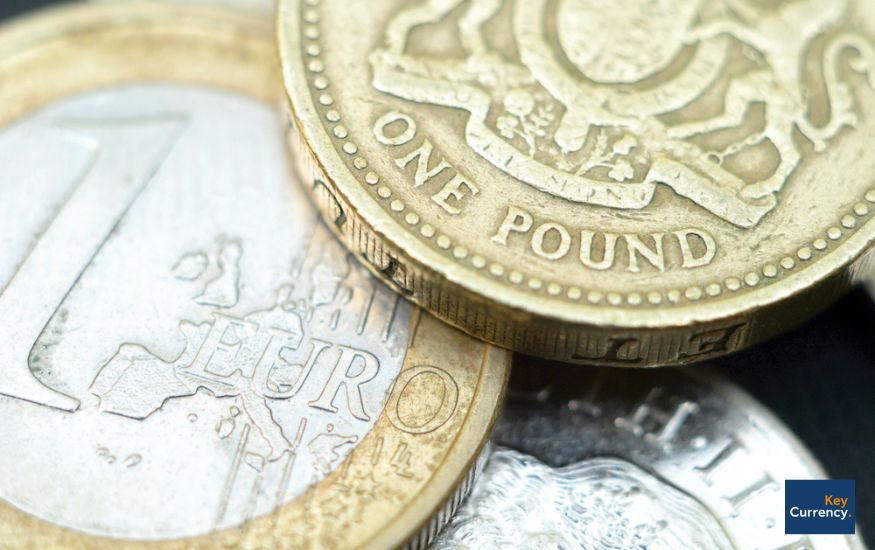 Author, Mike Smith
Author, Mike Smith
Last Updated on August 14th, 2024
If you are a homeowner or living or working in Spain, you will likely need to send funds from your Spanish bank to international recipients for various reasons.
For anyone not used to playing the currency game, diving into the world of exchange rates from Spanish banks can feel somewhat overwhelming!
With language barriers added to each bank’s different policies and, most importantly, fees, it’s crucial to do homework on the rates your Spanish bank offers.
In this article, we look at 3 of the most popular and accessible Spanish banks and the exchange rates they quote online and in person.
Save on Spanish Money Transfers with Key Currency
BBVA
If you bank with BBVA and need to send euros to pounds, brace yourself because working out the exchange rate can be intricate.
As helpful as the currency exchange information on BBVA’s website may seem, it displays both the sale and purchase prices.
You will need to be sure to take the correct figures into account when making a calculation.
Now, if you are not familiar with exchange rates and currency conversion, which, to be frank, most people are not, then you would be forgiven for finding this rather confusing!
If unsure, think about consulting a professional currency broker who can give you expert advice.
Let’s look at some numbers:
If your transfer with BBVA exceeds 100,000€, be prepared for margins of around 4-4.8%.*
*This is based on their exchange rate shown online when writing this article.
Our advice? Go on a quest (for exchange rates, of course).
Explore options, make comparisons, and try to secure a rate with lower margins.
CaixaBank
CaixaBank is one of the most recognisable banks in Spain and offers many perks for expats, including non-resident accounts.
They are renowned for their English-speaking staff, which is always good when discussing money-related things.
As with most Spanish banks, CaixaBank’s exchange rate approach depends on the amount of euros you will transfer.
Be prepared; if you only send a small amount, the associated exchange rate costs can be relatively high.
When I asked CaixaBank for a quote on transferring 100,000€ to GBP – they offered me a rate of 1.1743, which would give you, as a customer, a total of £85,157.11 – an exchange rate margin of 2.8%.
Please note: They could not confirm that this rate would be the one I would receive at the time of trading, it is only merely a guideline.
Also, the fee they would charge for this transfer is, wait for it, a whopping 3,600€ – a considerable chunk of your funds, to say the least!
To receive CaixaBanks’s most favourable rates, you must transfer 250,000€ or more, which isn’t a common scenario for most individuals.
Crucial to note is that CaixaBank’s margins are based on the transfer amount, not the specific currencies involved.
It is worth remembering too that your intended recipients may face charges, depending on their banks’s policies, with fees ranging from 12€ for the USA, Canada, and Europe and 20€ for the rest of the world.
Santander
Santander Bank is the largest bank in Spain with the instantly recognisable red frontage, a common sight all over Spain and the Spanish islands.
It is, of course, also an international bank which makes it ideal for customers who already hold an account with Santander in the UK.
The easy-to-navigate online banking system which is available in your language, and the English-speaking customer service available in all branches makes it a popular choice with expats.
These are the reasons that I bank with them myself!
When I asked for a quote to transfer 100,000€ to GBP – I was offered a rate of 1.1803, which means I would receive £84,724 in my UK account. That means Santander is taking a 3% margin.
However, the branch advisor whom I spoke to, later advised me by email:
“The exchange rate shown is merely indicative and is not the exchange rate that might be applied in transactions with the bank.”
Therefore – it is very much worth consulting a currency expert as to what rates they can offer.
One good reason to do so is that you will find that you can ‘lock in’ a rate with them – and avoid any last-minute surprises on your exchange!
Based on our extensive research, we found that Spanish banks fall short of providing competitive exchange rates. Typically, they impose a margin ranging from 4-8%, consuming a significant portion of your hard-earned money.

Banker’s Drafts (be aware of more fees!)
You should know the fees involved if you need to deposit a banker’s draft – commonly known as a cheque in the UK.
Spanish banks will charge between 0.5-1.5% to deposit the draft into your account! Rather scandalous!
Not only that – they will then charge you fees to send the money to your international recipient.
Selling a property in Spain is the most common reason you would have a banker’s draft.
Let’s say you are selling your property and have a balance to transfer of 250,000€.
Up to 3,750€ of your money could be taken by the bank simply to deposit the cheque!
Using a currency specialist will eliminate these fees and secure a much higher exchange rate.
At first glance, your local Spanish bank may appear to be the go-to choice for international money transfers. Having seen the very high margins the Spanish banks charge, it’s worth considering a professional currency broker. At the forefront of these alternatives is Key Currency, your friendly antidote to the big banks. As specialists in currency transfers, we operate with lower overheads than traditional Spanish banks. As an independent provider, we can offer you lower rates. You’ll have a dedicated representative assigned to you for personalised service. We believe in making the international transfer process a simple and cost-efficient one. Our team monitors the markets to ensure you get the best possible rate. We’re here to provide guidance and support, taking the responsibility off your shoulders. Check out our impressive 5-star Trustpilot rating with over 2,500 reviews, the highest available in our industry. Rest easy knowing that Key Currency is an FCA-regulated Authorised Payment Institution (No.753989), conducting all money transfers through safeguarded client accounts. Request a free quote below and see how Key Currency compares to your Spanish bank for exchange rates!Discover a Better Way to Transfer Money Internationally with Key Currency
Why choose us?
Curious about our reputation?

Want to Read More?



